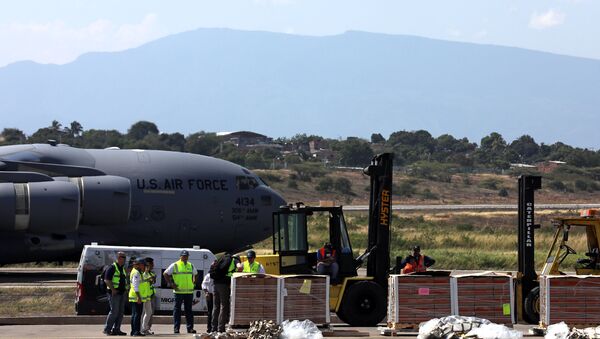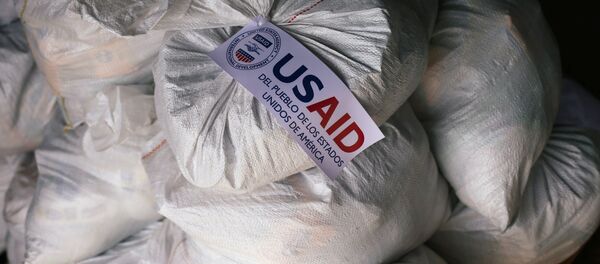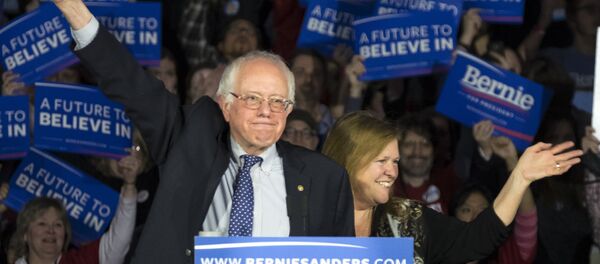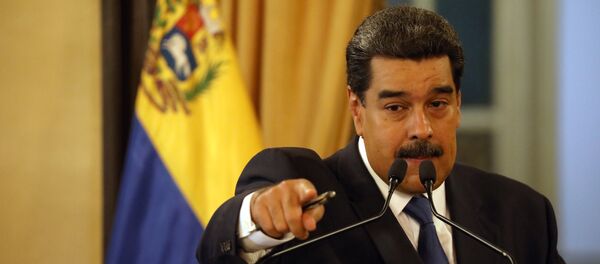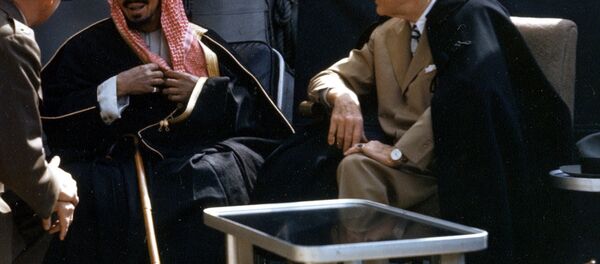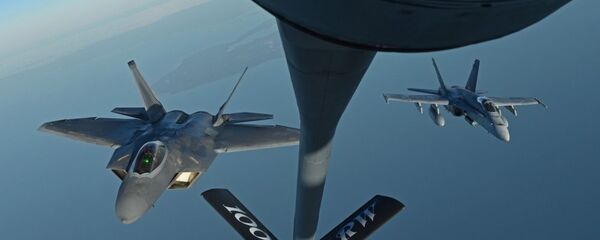Radio Sputnik's Loud and Clear spoke with Paul Dobson, a writer for VenezuelAnalysis.com, about recent events and events anticipated this weekend.
"And of course early this morning, we saw an incident on the Brazilian border, still a little bit unclear as to what exactly happened. What we can gather is that a group of indigenous citizens close to the border with Brazil tried to block a military convoy which was en route to close the border following the wording of the orders of President Maduro. We're not quite sure what happened at the confrontation; however, there have been reports that two indigenous citizens have died as a result. There are also rumors that the indigenous community kidnapped three high-ranking military officers, although these reports are yet to be confirmed."
#Venezuela National Guard blocking tunnel on road leading to Colombian border to keep volunteers from reaching aid crossings. But they will face larger & growing challenges in hours to come.
— Marco Rubio (@marcorubio) February 21, 2019
Time running out for certain leaders to make their choice. It will soon be too late. https://t.co/bvCvDAnGLC
In the Colombian border town of Cucuta, billionaire Richard Branson is preparing a "Venezuelan Aid Live" concert, aiming to raise $100 million for "food and medicine for Venezuelans," according to the Washington Post.
The concert will be on one end of the embattled Tienditas International Bridge, which has never been opened but nonetheless became the object of international scorn when the Venezuelan government took measures to further blockade the bridge earlier this month.
Note that the Tienditas Bridge, the one with the containers on it, has *never been open* since it was constructed. Media LIES! Border disputes w/Colombia in 2015 closed it b/c of speculation by ppl buying subsidized goods in VZ stores and selling in Colombia at market prices. pic.twitter.com/zjMYQ8Mfs8
— Morgan Artyukhina (@LavenderNRed) February 12, 2019
At the Venezuelan end of the bridge will be a three-day "Hands Off Venezuela" festival.
"We'll be here to denounce all the barbarity, the conspiracy, the blockades with which the United States government have been attacking the democratic stability in Venezuela," Dario Vivas of the ruling United Socialist Party told Al Jazeera on Thursday while speaking from that concert's construction site.
Dobson said the two concerts are "maybe 20 minutes away" from each other.
"We're also seeing a heavy military presence from both governments at the moment. We've seen US military on the Colombian side of the border in recent days. Three large cargo planes arrived with all of the military personnel, and we don't know what else, about three or four days ago."
"And obviously there's a lot of talk about what is going on at the border. The opposition concert is calling for the entry of what they call ‘humanitarian aid' into the country, and the pro-government concert is under the title of ‘Hands Off Venezuela,' so they are calling for a rejection of the US threats and the respect for the sovereignty of the country."
Dobson said that while things had been rather quiet in the country, contrary to what news outside of Venezuela might have said, "this weekend it is starting to heat up a little bit, although the vast, vast majority of the country is entirely calm at the moment. We're not seeing any road blockades being set up; we're not seeing any shift in the power dynamics which would indicate that there is an imminent coup — or an imminent success of the coup which is currently going on. In the rest of the country, people are going out to work, to the schools, to the hospitals, doing their shopping and so on, as usual."
"Tomorrow we are expecting to see large, right-wing opposition protests across the country, with obviously their focus being on the border regions, but we have also seen pro-government supporters mobilize to defend the country's right to self-determination."
Dobson said that "without a doubt," the US would try to manipulate the optics of the situation so as to appear to be championing a noble cause.
The journalist said that right-wing events usually work like this: "Small groups of right-wing youth protest; they start Molotov cocktails at government institutions, even nurseries, hospitals, things like this, start trying to burn them down, start shooting from the rooftops. The armed forces or the national guard are then called upon to restore public order, which obviously involves a confrontation, given the nature of the protesters. As a result, some are either arrested or, unfortunately, harmed in the protest, and international mainstream media reports this as ‘repression by the dictator.' So there is definitely a precedent there."
"It's also worth pointing out that the indigenous communities in that area of the country have, for a long time, had an ongoing spat with the government, essentially revolving around mining rights. The indigenous communities frequently practice illegal mining — or illegal according to the government's interpretation of the word — and the government have been trying for the last two or three years to regulate the mining industry in that sector, which has obviously been confronted with resistance by the very lucrative miners, who stem from the indigenous communities," Dobson explained.
"So we have seen numerous confrontations. The last was only in December, a couple of months ago, between the Pemon indigenous groupings and government security forces. So the recent confrontation has to definitely be seen in that context. I'm not indicating that mining was the cause of the confrontation; it seems to be more revolving around the closing of the Brazilian border. However, there is certainly plenty of bad will between this particular indigenous community, which is unique in its anti-government stance, [and the government]. The vast majority of the indigenous communities in Venezuela are pro-government, but this particular community is anti-government," Dobson said.
He cautioned however, that Guaido, "Washington's ‘man' in Venezuela," was failing in his objective to take power in the country, because "this worryingly pushes him down the path of foreign military intervention as the only means to which he can actually assume a presidency. So the longer the government stays in power here, the threat of government intervention is, in fact, more likely. This will mean huge bloodshed — not just for Venezuelans but for other peoples across the region, and will entirely destabilize the whole of Latin America. Therefore it must be opposed, for anyone who supports a diplomatic solution to the situation."
